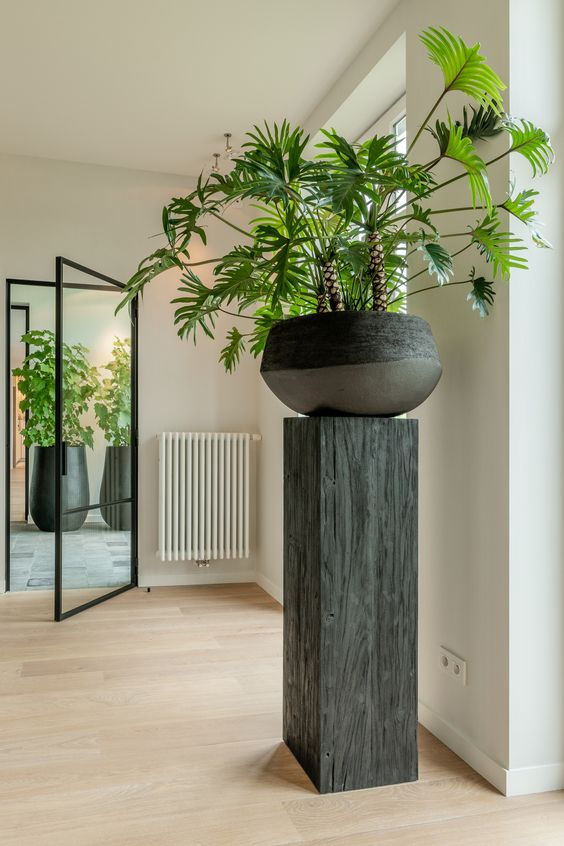The Benefits of Indoor Gardening
- Aug 27, 2023
- 3 min read

Indoor gardening is still surging in popularity, fed by Instagram’s greenery-inspired interior designs, plant-based podcasts, and online plant subscription.
From an interior design and sustainability point of view, we think plants are a perfect touch to a space for an organic feel and pop of color. But I've learned that, scientifically speaking, there are lots of reasons why we should have plants in our indoor spaces as well.
I did some digging, and here’s what research tells us about the benefits of living and working with indoor plants.
Indoor plants may help reduce stress levels
A study published in the Journal of Physiological Anthropology found that plants in your home or office can make you feel more comfortable, soothed, and natural.
In the study, participants were given two different tasks: repotting a houseplant or completing a short computer-based task. After each task, researchers measured the biological factors associated with stress, including heart rate and blood pressure. They found that the indoor gardening task lowered the stress response in participants.
The computer task, on the other hand, caused a spike in heart rate and blood pressure, even though the study participants were young men well-accustomed to computerized work.
Researchers concluded that working with plants could reduce both physiological and psychological stress.
Real plants may sharpen your attention

Unfortunately plastic plants won’t help you pass you meet your project's deadline. In a small study involving 23 participants, researchers put students in a classroom with either a fake plant, a real one, a photograph of a plant, or no plant at all.
Brain scans of the participants showed that the students who studied with real, live plants in the classroom were more attentive and better able to concentrate than students in the other groups.
Working with plants can be therapeutic
For people experiencing the symptoms of mental illness, indoor gardening can be helpful. Researchers have used horticultural therapy to increase feelings of well-being among people with depression, anxiety, dementia, and other conditions.
Plants may boost your productivity
A bromeliad may turn out to be the best cubicle-mate you’ve ever had.
Multiple studies have found that plants in the workspace increase both productivity and creativity. One frequently cited study from 1996 found that students in a campus computer lab worked 12 percent faster and were less stressed when plants were placed nearby.
In a 2004 study , researchers challenged people to make creative word associations. They performed better when a plant was in the room with them. And a 2007 study showed that people with more plants in their workspace took fewer sick days and were more productive on the job.
Plants may improve your whole outlook on work
A view of a perfectly manicured landscape will improve anyone’s job satisfaction — but it might surprise you to learn that a potted plant could have a similar effect.
Researchers interviewed over 440 Amazon employees in India and the United States. They found that those whose office environment included natural elements like indoor plants felt greater job satisfaction and more commitment to the organization than those who didn’t work around natural elements.
Researchers said the natural elements helped to buffer the effects of job stress and anxiety.
Plants may improve the quality of indoor air
Scientific support for phytoremediation — that’s the word for plants scrubbing contaminants from the air — usually begins with a NASA study conducted in the 1980s.
Researchers then were looking for ways to improve the air quality in a sealed spacecraft, and they concluded that the roots and soil of houseplants reduced airborne volatile organic compounds (VOCs) significantly.
Since those early studies, researchers have both confirmed those findings and called them into question.
Recent findings suggest that you’d have to shelter a large number of plants to equal the air purifying efficiency of modern biofilters and other technologies.
If you do decide to purchase houseplants to freshen the air naturally, these are several of the species shown to be most effective:
areca, lady, dwarf date, and bamboo palms
Boston fern
rubber tree
spider plant
Ficus tree
Did I convince you to work extra hard to keep those plants alive?
- Raph







Comments